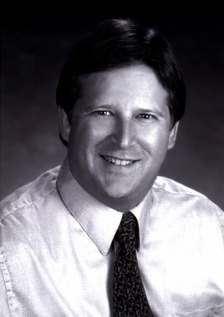Dr. Paul Root Wolpe
The Chicago Tribune article Forget sports doping. The next frontier is brain doping said
“As Major League Baseball struggles to rid itself of performance enhancing drugs, people in a range of other fields are reaching for a variety of prescription pills to enhance what counts most in modern life.Despite potential side effects, academics, classical musicians, executives, students and even professional poker players have embraced the drugs to clarify their minds, improve concentration or control emotions.
‘Whatever company comes out with the first memory pill is going to put Viagra to shame,’ said University of Pennsylvania bioethicist Paul Root Wolpe.”
Paul Root Wolpe, Ph.D., FCPP is Associate Professor of Sociology in Psychiatry in the Department of Psychiatry at the University of Pennsylvania, where he also holds appointments in the Department of Medical Ethics and the Department of Sociology. He is a Senior Fellow of Penn’s Center for Bioethics, and is the Director of the Scattergood Program for the Applied Ethics of Behavioral Health and the Program in Psychiatry and Ethics at the School of Medicine. He is a Senior Fellow of the Leonard Davis Institute for Health Economics, and a member of Penn’s Cancer Center and Center for AIDS Research.
Paul serves as the first Chief of Bioethics for the National Aeronautics and Space Administration (NASA). The office is responsible for safeguarding the protections of research subjects and astronauts both within NASA and among our international space partners. He is also the first National Bioethics Advisor for Planned Parenthood Federation of America, helping that organization plan for the changing social dynamics and emerging reproductive technologies that will influence women’s reproduction over the coming decades. He is one of the few non-physicians to be elected a Fellow of the College of Physicians of Philadelphia, the country’s oldest medical society. He is Coeditor of the American Journal of Bioethics and was recently President of the American Society for Bioethics and Humanities, the national professional organization for scholars in bioethics and the medical humanities.
Paul did his undergraduate work in the sociology and psychology of religion at the University of Pennsylvania, and went on to earn his Ph.D. in Medical Sociology from Yale University under an NIMH grant in Mental Health Services Research and Evaluation. After graduate school in 1986, he began teaching at Penn, and has taught there in one capacity or another ever since. From 1988–1992, he was full-time in the Department of Psychiatry at Jefferson Medical College.
He is the author of over 100 articles and book chapters in sociology, medicine, and bioethics, and has contributed to a variety of encyclopedias on bioethical issues. A founder of the field of neuroethics, which examines the ethical implications of neuroscience, he also writes about other emerging technologies, such as nanotechnology, genetic engineering, and prosthetics. His writings range across multiple fields of bioethics and sociology, including mental health and illness, death and dying, genetics and eugenics, gender, alternative medicine, and bioethics in extreme environments such as space. He is a coauthor of the textbook Sexuality and Gender in Society and the guide to Jewish end-of-life decision-making, Behoref Hayamim: In the Winter of Life.
Paul sits on a number of national and international non-profit organizational boards and working groups, is on the editorial boards of a dozen journals, and is a consultant to academic institutions and the biomedical industry. A dynamic and popular speaker at Penn as well as internationally, He was recently awarded the Outstanding Faculty Award by the Friars Club, a Senior Honors Society at Penn, and has been chosen as a “Superstar Teacher of America” by The Teaching Company which distributes his courses on audio and videotape. He is also frequent contributor and commentator in both the broadcast and print media, recently appearing in the New York Times Magazine, MSNBC, ABC News, the Canadian Broadcasting Company, the Washington Post and National Public Radio, among many others.
He authored Reasons scientists avoid thinking about ethics, Understanding “quality of life”: Does it have a role in medical decision-making?, and Religious responses to neuroscientific questions, and coauthored Re-examining ethical obligations in the intensive care unit: HIV disclosure to surrogates, Emerging neurotechnologies for lie detection and the Fifth Amendment, Bioethical issues in deep brain stimulation, Monitoring and manipulating brain function: New neuroscience technologies and their ethical implications, and Religiosity in a hemodialysis population and its relationship to satisfaction with medical care, satisfaction with life, and adherence. Read the full list of his publications!
Read Picking Your Brain.
